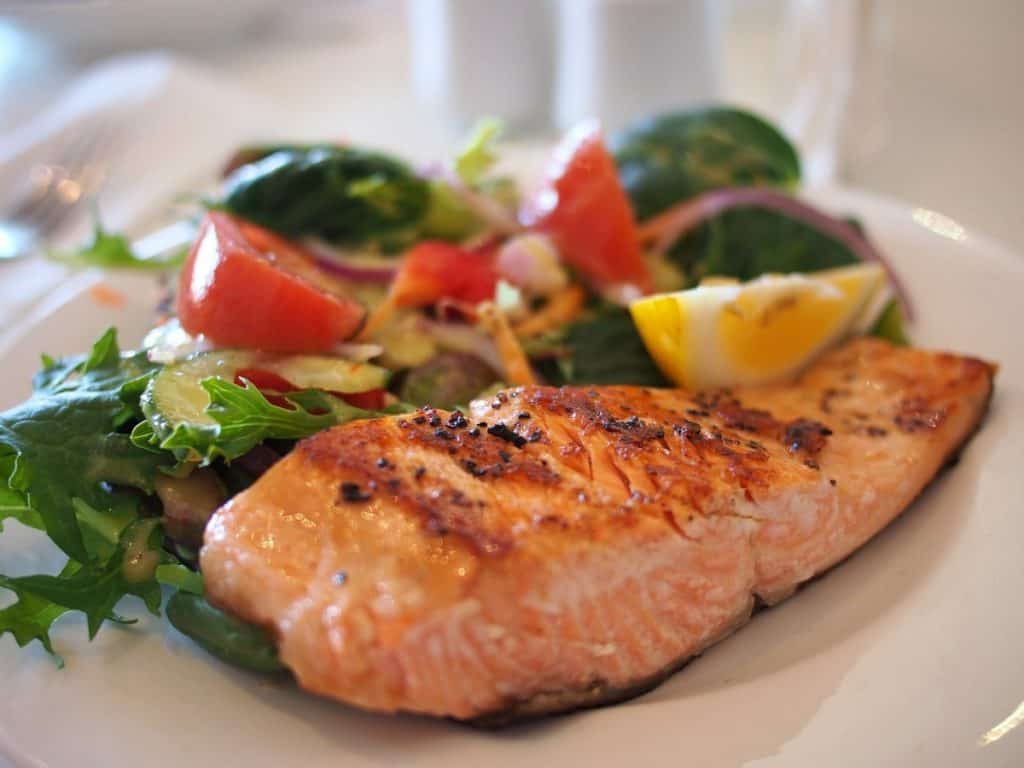A friend and I were discussing the Keto Diet and were talking about carbs and does a carb from a potato chip differ from a carb of a raspberry. I wanted to know so I looked into it and this is what I found out.
Do the type of carbs matter on keto? The answer is absolutely Yes. What if I keep my carbs within 20 to 50 grams? Yes. Does it really matter what type of carbs you should consume? Yes.
The important thing to have is carbs that are low on the glycemic index. The glycemic index or GI is a scale of foods and the effect that it has on blood sugars.

The higher the GI the higher your blood sugar will spike. Lower numbers will spike blood sugars less. Glucose has a level 100. Also there are foods above 100. For example maltodextrin is between 106 and 136.
So it does matter the the types of carbohydrates that you consume on the Keto Diet and off of it.
For example let’s say you are doing 20 grams of carbs per day and those carbs are coming from sugar or high-fructose corn syrup, maltodextrin, rice puffs, potato chips, or white bread, you would be better off consuming more carbs from berries, or vegetable or other low GI foods.
You will want to get the glycemic index chart and study it and stay on the low end. If you are even consuming smaller amounts of carbs but they have a stronger effect on blood sugars, it will not only make your blood sugars higher and prevent you from staying in ketosis, but the next day you are going to be starving for carbs.
I have looked at a so-called keto friendly bar and I found that it contained ingredients that were higher on the GI and it will create cravings for more carbohydrates the next day. It will create a spike in blood sugar and then a drop and a hunger the next day.
If you are doing intermittent fasting and you have these hidden sugars it will be tougher than it needs to be. The type of carbs do matter, so stick with the low glycemic index foods. If you are trying to lose weight you can stay with a higher amount of carbs as long as they are the right carbs.
Is that the end of the story? I had found out more about carbs, which made me think is a calorie a calorie? And could someone on a Keto Diet increase their calories and still lose weight? Do calories in versus calories out really matter?
Is a Calorie a Calorie?
The short of it is calories in and calories out do matter, but a nuance piece is it depends on what calories you are putting in.
So say you take in 100 calories, but your body requires 150 calories, then you are in a calorie deficit. So your body will go to it’s stored supply of energy, body fat and convert that fat to energy. This will aid in weight loss.
The problem with that is how long can you do that for? Maybe for a month, maybe a couple months but you are eventually going to burn out and that is why those calorie restriction diets are very difficult.
If you are doing a calorie deficit diet while eating carbs, can be very hard. The carbs cause the body to crave them.

So what you really want to do is have good calories coming in. A lot of people will go on a diet and the first thing people will say is eat healthy foods and a lot of times the reason that works is you are cutting out all those processed and junk foods.
Once again the type of calorie is important if you can get rid of foods that cause your body to dysfunction and it may be hormonal dysfunction or it maybe a processing dysfunction and replace those with good calories. Foods that are not processed.
Then you are stepping in the right direction.
Could someone on a Keto Diet increase their calories and still lose weight?
The Keto Diet allows you to regulate how much you want to eat. It satiates your appetite. So you may not overeat with a high fat very low sugar diet and that is going to balance out your calories in and calories out. So a calorie is not always a calorie.
Starting out on the Keto Diet, you may need to get used to how much food you need to be satisfied. But you will get the hang of it, so stick with it.
Finding where your baseline caloric needs are is extremely difficult. So to be able to say that you need to be in a calorie deficit, although that is true because simple thermodynamics do apply, you do need to technically be consuming less calories in order to lose weight.
We really don’t know what less calories is and it can change from day to day because there are so many different external influencing factors. We have things like insulin that will definitely influence other hormones.
We have cortisol, we have testosterone, we have estrogen, we have our moods, we have heat, we have cold. We can not ever determine exactly where we are calorically, from where we need to be.
Do calories in versus calories out really matter?
Let’s go back to this calories in and calories out and the specific types of calories. You also have to remember to add to that list is different types of fat in your body. You have two main types: the white adipose tissue and the brown adipose tissue.
Brown Fat-
The brown adipose tissue is a thermogenic tissue that generates heat instead of synthesising ATP for energy. So if you have a lot of the brown adipose tissue, you might ask “How does that affect my basal metabolic rate?”
Brown fat is there essentially to keep you warm and that means that the calories that are feeding that brown fat are feeding the fat to keep you warm. It’s just being burned it’s not necessarily being burned for your energy needs.
White Fat-
Then you have the white fat. There is much more white fat in the body than brown fat. White fat is generally looked at as more of a problem. Especially if it is around the abdominal area. It is associated higher risk of metabolic disease.
White fat stores energy and produces hormones that are released into the blood stream. One of the hormones is called adiponectin. This makes the liver and muscles sensitive to the insulin.
When people become over-weight, the production of adiponectin slows down or stops, and sets them up for disease.
Now there’s people that say this one is bad and one is good. In reality they are both neutral they both have their place.
What that calorie influences can do a lot of different things. So with ketosis let’s say you consume a fat calorie that comes from MCTs, then that fat calorie is going to illicit and be a catalyst for more energy.
Which is going to yield more fat burning. It will yield more energy expenditure. There are so many factors that we can look at.
Then you take a look at that same calorie coming from a couple grams of sugar or something like that, and it is a whole different ball game. Now you are triggering an insulin response, opening the way for the cell to store fat, but it doesn’t change the fact if you want to lose weight you should most likely be eating fewer calories.
Related Questions-
How many carbs are allowed on keto diet? For most people doing a Keto Diet it will be 20 to 30 grams of net carbs per day. Some people do just fine with 50 grams of net carbs a day. The exact amount will vary depending on several factors. A general guideline is to have 5% or less of your calories in a day come from carbs.
Which macros are most important on keto? The Keto Diet focuses on three macros. They are fat, protein, and carbs. Your body needs these in large amounts. So a general rule is 60 to 75% of calories should come from fat, 15 to 30% from protein, and 5 to 10% from carbohydrates.
Does dietary fiber count as carbs in Keto? Fiber does not significantly affect blood sugar and ketosis. So No dietary fiber does not count as carbs on the Keto Diet. Total carbs would count dietary fiber and Net carbs does not count it. The Keto Diet is counting net carbs.